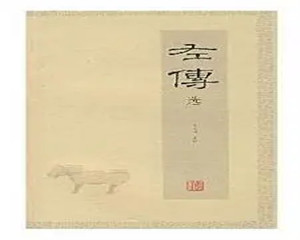《左传》,旧传为春秋时期左丘明著,近人认为是战国时人所编 [31] ,是中国古代一部叙事完备的编年体史书,更是先秦散文著作的代表。作品原名为《左氏春秋》,汉代改称《春秋左氏传》、《春秋内传》、《左氏》,汉朝以后多称《左传》。它是儒家重要经典之一,是历代儒客学子重要研习史书,与《公羊传》《谷梁传》合称“春秋三传”。
《尚书大传》,是对《尚书》的解释性著作,作者和成书时间均无法完全确定。只有后人辑本传世,以皮锡瑞本最佳。旧题西汉伏生撰,可能系其弟子张生、欧阳生所记师说。
墨子(公元前476或480年—公元前390或420年),名翟,春秋末期战国初期宋国人,一说鲁阳人,一说滕国人。宋国贵族目夷的后裔,曾担任宋国大夫。中国古代思想家、教育家、科学家、军事家,墨家学派创始人和主要代表人物。墨子死后,墨家分为相里氏之墨、相夫氏之墨、邓陵氏之墨三个学派。墨子弟子根据墨子生平事迹的史料,收集其语录,编成了《墨子》一书。

古代名言(197)
良弓难张,然可以及高入深;良马难乘,然可以任重致远;良才难令,然可以致君见尊。(《墨子·亲士》)
Good bows may be hard to draw, but they can reach great heights and pierce deeply. Fine horses may be hard to ride, yet they can carry heavy burdens and make long journeys. Real talents may be hard to command, but they can help the ruler to win respect. (The Works of Mozi)
人谁无过?过而能改,善莫大焉。(左传·宣公二年)
Who can avoid mistakes? It will be very good if one can correct mistakes after committing them. / To err is human; to correct divine. (Zuo Qiuming [of the Spring and Autumn Period]: Zuo's Commentary)
宠辱不惊,闲看庭前花开花落;去留无意,漫随天外云卷云舒。
Don't be disturbed by fortune or misfortune. Be relaxed no matter how flowers bloom and wilt. To be or not to be needs no hard decision. Take it natural no matter how clouds flow high and low.
日月光华,旦复旦兮。(《尚书大传·虞夏传》
Heavenly light shines day after day. / The sun and the moon shine day after day. (Scholia of the Book of History)
更多精品翻译素材,敬请关注可可英语。












